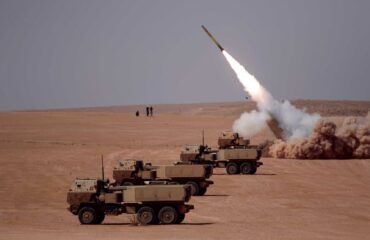US plays down nuclear deal with Iran; China’s Sinopec to hit $31.1bn capital expenditure in 2022: NRG matters

RIYADH: The US is playing down a nuclear deal with Iran, the negotiations of which would involve Moscow, in another example of the complications caused by the war between Russia and Ukraine.
The conflict is also affecting costs of raw materials which, in return, is impacting costs of electric trucks, solar power, and wind power.
On a micro level, China’s Sinopec are pursuing investments in favor of the sector, while the UK’s BP Plc is seen falling short of its climate targets.
Looking at the bigger picture:
- The US has announced that reviving the nuclear deal is no longer imminent, as Tehran has requested the removal of the Islamic Revolutionary Guard Corps from the country’s list of terrorist organizations, Bloomberg reported.
- Costs associated with electric trucks are projected to remain “forever” higher than those using combustion engines, according to Martin Daum, CEO of German commercial manufacturer Daimler Truck.
- Geopolitical tensions between Russia and Ukraine are further pushing solar and wind power costs higher and higher, the Wall Street Journal reported. The price of renewable energy projects were already exposed to price hikes due to supply-chain strains and raw material increases long before the war.
Through a micro lens:
- Chinese oil and gas enterprise Sinopec is expecting to spend a record 198 billion yuan ($31.1 billion) in 2022 on several activities including exploitation of crude oil bases in local natural gas fields, Reuters reported. The figure represents an 18 percent growth from a year ago and beats the previous record in 2013 of 181.7 billion yuan.
- UK oil and gas company BP Plc’s targets to reduce absolute emissions account for a fifth of its total greenhouse gasses, Bloomberg reported, citing a new study. Despite its strategy to significantly slash emissions from operations and products by 2050, the study estimates that oil and gas products will still be accountable for around 91 percent of the oil and gas giant’s sales by 2030.





















